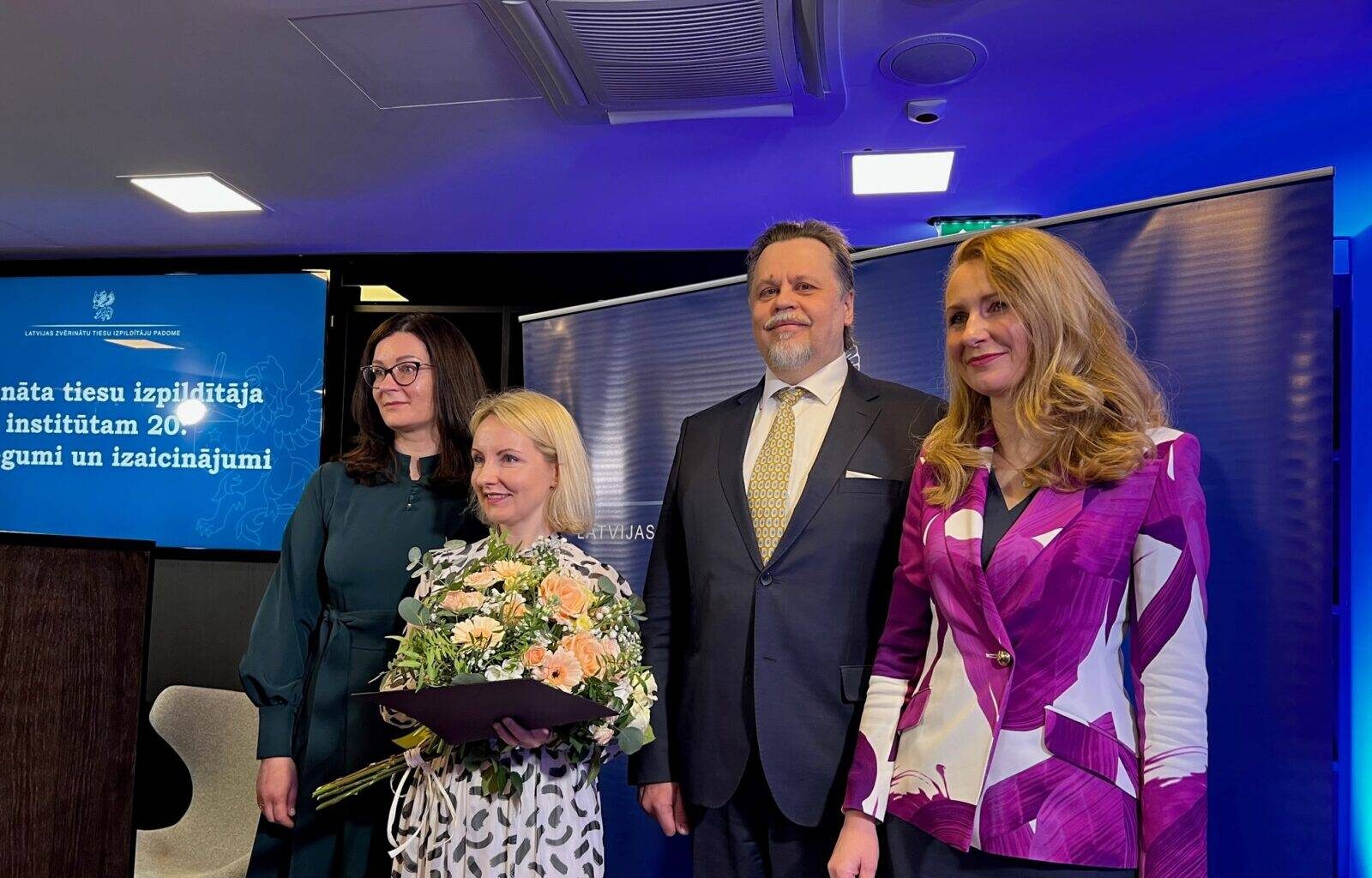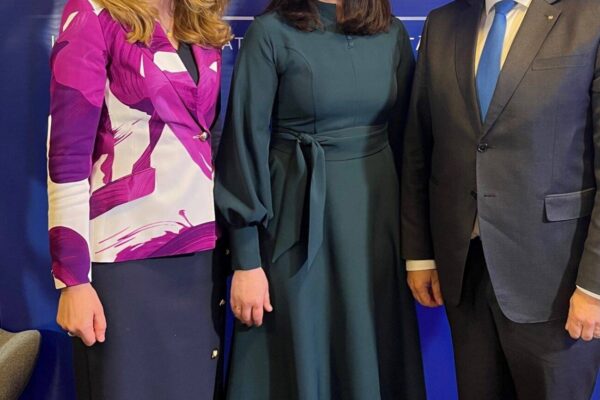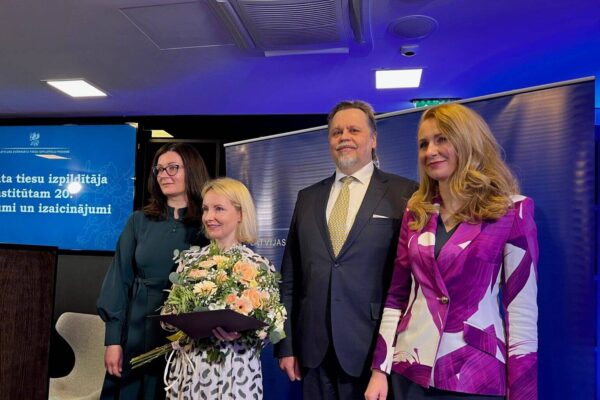On the 21st of April 2023, the UIHJ, represented by Marc Schmitz (President), Jos Uitdehaag (1st Vice-President), Patrick Gielen (Secretary of the Bureau), David Walker (Deputy Treasurer), and Janek Pool (Member of the Executive Committee of the UEHJ), participated in a conference organized in Latvia to celebrate the 20th anniversary of the Latvian National Council of Sworn Bailiffs. The conference focused on the theme of enforcement and brought together legal professionals to discuss the issues and challenges related to this activity.
The conference commenced with speeches from Iveta Kruka (President of the Latvian National Council of Sworn Bailiffs), Inese Lībiņa-Egnere (Minister of Justice of the Republic of Latvia), Marc Schmitz, and Aigars Strupišs (President of the Supreme Court of Latvia), who emphasized the importance of the judicial officer profession in a state governed by the rule of law.
Before starting the first panel, Iveta Kruka paid tribute to Guna Berlande, Director of the Latvian National Council of Sworn Bailiffs, for her unwavering commitment to the profession. This recognition highlighted the importance of Ms. Berlande’s contribution to the evolution and promotion of the profession.
The first panel, moderated by Iveta Kruka, addressed the question of whether forced execution was a necessity or a mere formality. The speakers emphasized that forced execution was a necessity in a state governed by the rule of law, as it was rare for parties to voluntarily comply with court decisions. However, it was important to respect the principle of proportionality and to consider the human interests of the people involved in the execution process. Judicial officers play an important role in ensuring that execution procedures are carried out fairly.
The second panel, led by Andris Spore (Vice-President of the Latvian National Council of Sworn Bailiffs), discussed the necessary means and methods for effective forced execution. The speakers highlighted that judicial officers must adapt to changing situations and needs, particularly in the context of increasing digitalization within society. It was noted that judicial officers must have access to the necessary information to carry out execution procedures successfully. It was also important to find solutions for vulnerable people faced with enforcement measures, ensuring that procedures are carried out fairly and proportionately.
The third panel, led by Guna Berlande, focused on the challenges relating to the execution of decisions concerning child access rights. The speakers emphasized that the profession must reinvent itself to safeguard its place in the future and to adapt to changes in society. Increasing digitalization was also mentioned as an important challenge, requiring appropriate means and methods to carry out execution procedures successfully.
In conclusion, this conference, organized within the context of the 20th anniversary of the Latvian National Council of Sworn Bailiffs, highlighted the challenges faced in this field and allowed various actors in the legal world to exchange views on issues related to forced execution. It became clear that forced execution was a necessity in a state governed by the rule of law, but it was important to ensure that execution procedures remained in the hands of judicial officers, the only professionals capable of guaranteeing the rights of the parties involved.









